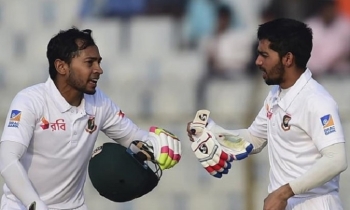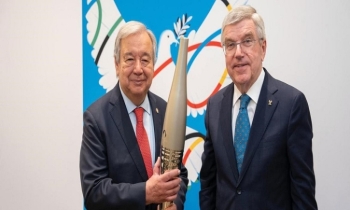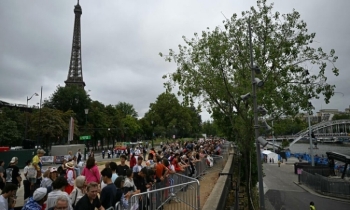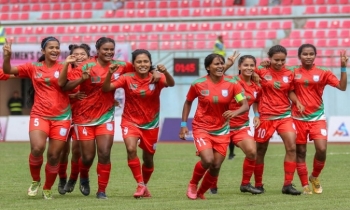How period tracking could boost performance of female Olympians
BI Desk || BusinessInsider
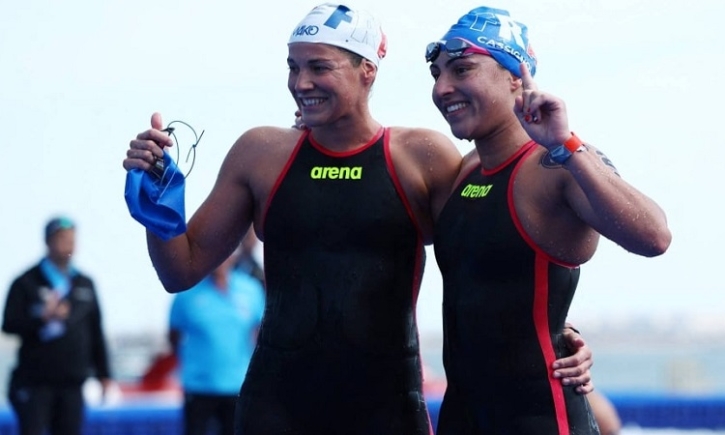
Photo: Collected
French swimmer Caroline Jouisse has been keeping track of her periods using her phone over the last year, collecting information for her coaches ahead of competing in the Paris Olympics this summer.
The data helps her plan the best time to work on building her muscles, which is ideally in the middle and at the end of her menstrual cycle when her testosterone levels are at their highest, reports BSS/AFP.
"It's important to know when my testosterone peaks are because that is when you feel your best and will be at your strongest in training," said the 29-year-old, who will compete in the 10-kilometre open water event at the Paris Games.
Research in sports focuses overwhelmingly on male athletes, and the effect menstrual cycles have on athletic performance remains under-studied.
Hoping to address this gap, France's National Institute of Sport (INSEP) launched a program called Empow'her in 2020 to track and learn from the menstrual cycles of athletes.
"There is no need to be embarrassed about your cycle -- it is part of performance, just like nutrition or training," said INSEP gynecologist Carole Maitre.
- Lack of research -
For six months last year, Jouisse's training sessions were analysed daily. Her hormonal, cardiac and psychological data was then compared to the different stages of her menstrual cycle.
"Before starting the program, I was not aware that there were all these phases," said Jouisse, who is currently doing 10 swimming and three weight training sessions every week.
French cross-country skier Juliette Ducordeau said the Empow'her program helped her understand her body better, as well as identify "quite impressive trends" in her performance.
"The optimal times for my training sessions are during the ovulation phase, from the first to the 15th day of the cycle," the 25-year-old said.
The last few days were more laborious, she added.
Since launching in 2020, 130 French sportswomen have participated in Empow'her, which hopes to help fill in significant gaps in scientific research about the female body.
The head of the program, Juliana Antero, said that just nine percent of sports science studies published in the last five years were about women -- compared to 71 percent for men.
"There are very few high-quality studies, so for the moment there is no consensus on the impact menstrual cycles have on sports performance," Antero said.
While the symptoms -- such as headaches and pain -- were relatively similar, how intense they were and how long they lasted can vary significantly between different athletes, she said.
A 2021 UK study conducted on elite female footballers found that around 90 percent suffered from fatigue and loss of power during menstruation.
Two thirds said their confidence and focus were affected, while 13 percent missed training or matches, according to the study led by researchers at Queen Mary University of London.
Period tracking hit the headlines in 2019, when the United States women's football team credited it with helping players train for their victorious World Cup campaign.
- Male coaches 'embarrassed' -
But change has been slow.
Alpine skier Clara Direz, a former Empow'her participant, said that her mostly male coaches are still "embarrassed to talk about menstrual cycles -- and don't show much interest".
"It is important to raise awareness among athletes -- but first and most importantly we need to raise awareness among coaches," Jouisse, the swimmer, said.
Talking about periods remains "taboo" in her sport, she added.
But ahead of the Paris Olympics starting in July, more attention is turning towards the subject.
France's cycling federation recently took part in a study which demonstrated that cyclists perform better on average in the middle of their menstrual cycle.
"Before there was discomfort, and athletes had to ask for help," Maitre said.
"Now, we're working on them getting systematic support."


